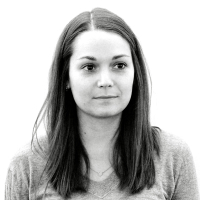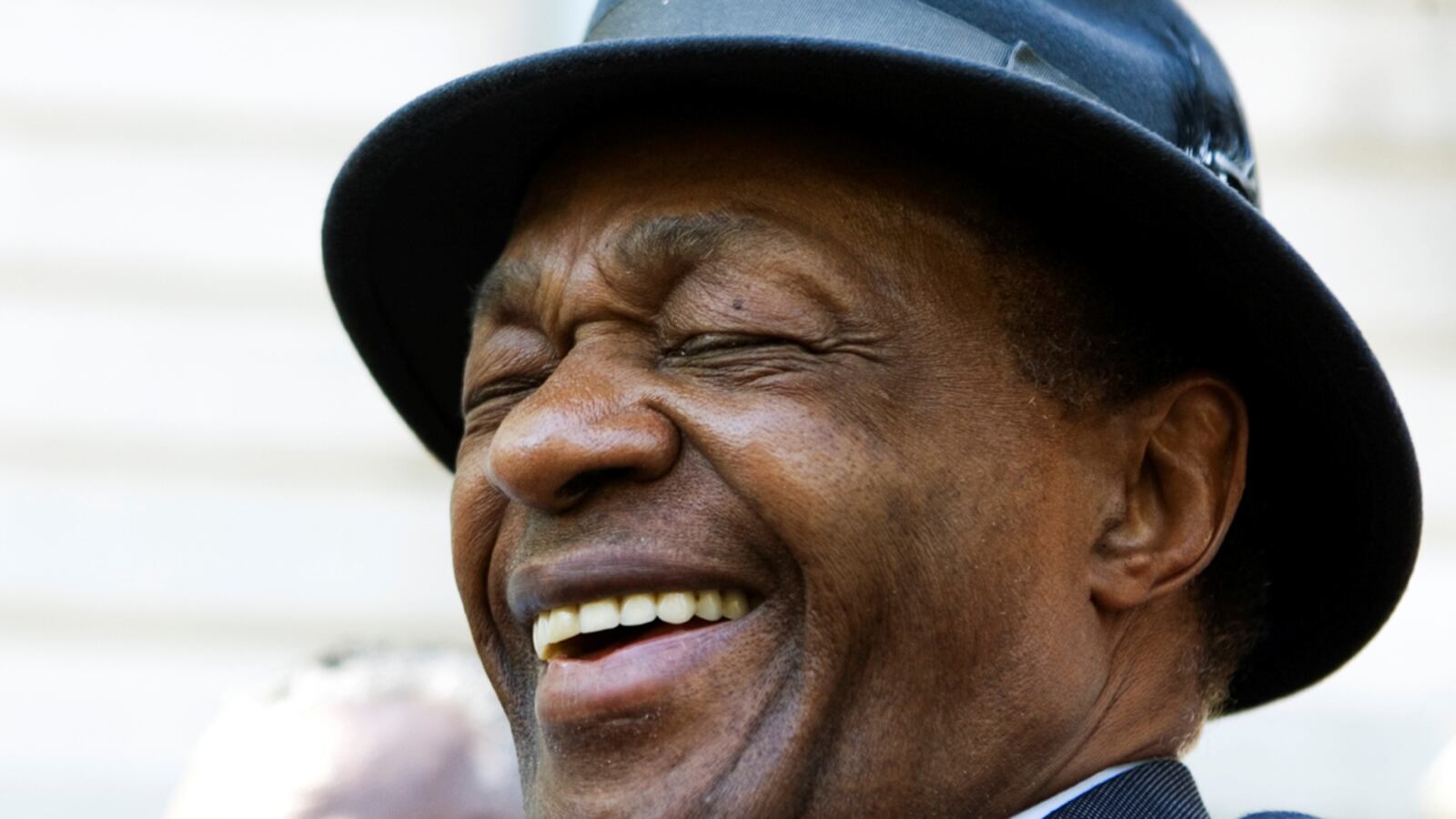“I am a brilliant elected official,” Marion Barry tells me.
It’s just after noon on Wednesday, and the former mayor sounds a bit groggy, but enthused. Tuesday night, he grabbed more than 70 percent of the vote in DC’s Ward 8 primary election, beating four Democratic challengers and effectively claiming his third consecutive term on the city’s Council, and his fifth in total—an almost Jordan-esque run. Judging from his raucous election-night Twitter boasts—“Twitter officially BLOWN UP from SOUTHEAST Washington, DC! We tweet with swag over here. It’s called twaggin if you didn’t know:”—he was up pretty late for a 76-year-old.
“I’ve had 31 years of excellent, outstanding public service to Washington, D.C., helping people, solving problems,” he says when asked about his plans for the four years of his upcoming term. But Barry adds that his win should be put “in context,” since “I represent a ward that is the poorest in the city in terms of income. We have the largest income gap out of any urban area in America.”
Indeed, the District of Columbia’s Ward 8 is home to some of the country’s poorest residents. According to the Department of Employment Services, 25.2 percent of Ward 8 residents were unemployed as of January of last year, and the poverty rate was at 35 percent. Then again, after 31 years of public service, Barry may have something to do with his district’s condition.
“There are times when the spirit is so low, you try to get people to be proud of Ward 8, but how can you be proud when you’re worried about where your next meal is coming from?” Barry says. “You gotta advocate, push strongly, be an example of someone who believes strongly in themselves. Who gets knocked down and gets right back up.”
For better or worse, that’s precisely the example Barry has set. His publicly scandalous history—including affairs, drug addiction, imprisonment, and even tax evasion—has, in some respects, enhanced his legitimacy among his loyal constituents. Marion Barry is far from perfect, and he’s certainly been down. But he keeps on moving.
When asked what he has that his competitors don’t, Berry rattles off a list of (partially inaudible) attributes. “Vision. Big vision, big vision. Leadership skills, experience wisdom, courage, tenacity…You gotta have hope, you gotta have vision. I have both.”

Barry says he is committed what he calls “The Ward 8 Renaissance.” He says he wants to fix the failing public school system, lower the unemployment rate, and promote job training and homeownership. He wants to take the boards off of vacant houses and build affordable condominiums.
Yet, Barry has been in his current office since 2004. He was a four-term Mayor before that and was an at-large member of the DC Council before that. Ward 8 has been a mess throughout. Though he says “Ward 8 looks a lot different now than it did in 2005 and it’s gonna keep looking different,” many feel he hasn’t done enough.
There’s no doubt the Ward has changed over the past few years. Though still predominately black, cheap housing has attracted many young, middle-class professionals who are transplants to D.C. as well as the neighborhood.
While Berry says he welcomes “the new spirit, new attitude” of Ward 8’s latest arrivals, he adds that “gentrifiers come in and think they have all the answers to everything. They want to change the community to their needs, not enhance what’s already there.”
But its not only so-called “gentrifiers” who are starting to expect more from their community. Many who’ve lived there for years, even decades, and even some who were Barry-ites themselves in the past, have watched formerly forlorn areas elsewhere in the city like the U St. Corridor and H St. Northeast turn around, and asked, as Anacostia Neighborhood Commissioner Gregg Justice III puts it, “why isn’t Ward 8 like that?”
While Barry credits himself for some recent development in the Ward, Justice argues that any progress the area’s seen has been the result of market forces. There are still hardly any restaurants, grocery stores or other types of commerce in the area, said Justice, who usually drives to Virginia or Maryland to get any shopping done.
“There is one sit-down restaurant in Ward 8, one grocery store, a hospital that is barely hanging on. All of the things you need for a thriving community if there is one, there’s barely one—and that’s unacceptable.”
Justice’s view was echoed by Anacostia Coordinating Committee chief and five-time head of the Democratic Party there Philip Pannell, also a former supporter who was appointed to the city’s human rights commission and made a trustee of the DC Public Library by Mayor Barry.
“I think that we really need a change in this ward and his continued tenure as a city council member is a hindrance to progress,” said Parnell, who has lived in Ward 8 for 30 years. “I don’t see how he’s helped change the conditions in this ward.” Pannell, who says his opinion of Barry started about when the ex-mayor rejoined the council in 2005, split with him in 2009 when Barry said he’d support a DC bill recognizing the legitimacy of gay marriages performed in other states only to swiftly reverse course, and oppose the bill in order to avoid what he called “a civil war” within his constituency.
“He demagogued the issue,” Pannell said. “I am gay so, naturally, I was intensely opposed to the way he handled that issue.”
In the 1960s, Barry, then an up-and-coming civil rights activist founded Pride Inc., a program funded by the Department of Labor which offered job training to unemployed black men in DC. Through Pride, hundreds of teenagers were put to work cleaning up litter, making legitimate money and keeping their neighborhoods clean. Many of Ward 8’s older residents still credit Marion Barry with giving them their first job. Later, he pushed for the creation of an elected local government, giving the capitol’s residents—who were mostly black—a political voice, and then became the city’s second elected mayor in 1979, serving until 1991, and a symbol for many of self-determination.
“He opened a lot of doors for middle-class blacks to move to DC. I have a great appreciation for what he did,” says Justice. “But that served a particular period. That was then, this is now. What have you done for me lately?”
“Whether or not he remembers you, when he sees you he puts on such a great act that, when you walk away, you walk away knowing that he remembers you,” said Darrell Gaston, one of Barry’s Democratic primary challengers. “One voter told me yesterday, ‘I don’t care that he hasn’t done anything in the past seven years. I know if I order takeout, we can sit down and eat chicken together.’”
Justice is even blunter. “We’re stuck with a poverty pimp,” he said. “There is no profit in peace. As long as people are in great need or in despair and you say what sounds good, rev up their emotions, they’re more inclined to follow you. If their education is raised, if they can think logically about what you’ve done and what you bring to the table then you don’t stand to win from that. If you suppress that, then you benefit. You have a job.”
That job, said Justice, is “being Marion Barry, being able to pander to his constituency. It’s not always a financial thing for some people; it may just be an emotional thing.”
The emotional thing has long been part of Barry’s appeal. Duane Gautier, the founder of Arch Development Corporation, an Anacostia-based non-profit job-training and community-development center that he credits Barry with getting off the ground, says the fact that Barry has not used his position for personal wealth has resonated with constituents.
“They realize this is not a man that has become wealthy by any stretch of the imagination like other mayors in other cities have,” Guatier said. “This man lives modestly.”
He’s also a regular presence in the ward. “A lot of members on the council speak about assisting various areas like Anacostia but very few have ever visited,” said Gautier. “You see Councilmember Barry on the streets. His district offices are in the heart of Anacostia.”
Even before the polls closed Tuesday night, it seemed a Barry victory was inevitable. “I just hope that he’ll do a better job and that he doesn’t interpret his re-election to continue to do what he has been doing,” Pannell said. “But knowing Marion Barry, nothing will change.”
Barry, says Justice, suffers from “Michael Jordan Syndrome: He doesn’t know when to bow out gracefully.” Justice said that while “each year his political influence is eroding,” he wouldn’t be surprised if Barry died in office. “He said he’d be mayor for life. I don’t think that’s a stretch.”
When Ward 8 Democrats hit the polls Tuesday, one of the five candidates vying to oust Barry was Darrell Gaston, a 25-year-old Anacostia Neighborhood Commissioner who grew up in the DC public housing community of Sheridan Terrace. Now a resident of Garfield Heights, Gaston was raised in a pro-Barry environment. He says his own family members encouraged him not to run against Barry.
“You know that once your people are empowered, they’ll see right from wrong and will no longer be dependent on you to advocate for them,” Gaston says. “The people on TANF, public assistance, public housing, they’re drawn to him. The more homeowners we have, people paying taxes, people who expect a higher acquisition of city services [we’ll see that] he’s not doing what he can be doing as a councilmember.”
But while Barry’s supporters, many of whom have been pulling the lever for him for decades, reliably show up at the polls, Gaston says his generation has sat out the political process, feeling disinterested and disenfranchised in part by the resilience of the man who brought local self-rule to the city.
“I pray that this is his last term,” says Gaston. “I pray that he understands that he needs to find someone he can groom. I pray that he understands that people would rather see him go out on top than as a disgrace.” By disgrace, he means Barry losing office, not his many public scandals, which Gaston said made people in the ward get emotional and defensive when they were raised.
But if grooming a successor is on Barry’s agenda, he’s not talking about it. “My successor is not on my mind,” he said. “My mind is on the Ward 8 Renaissance.”
After 31 years of service, five terms in the city council and four terms as mayor, is it time for a change?
“I may be an older person but I’m part of the new generation,” says Barry.
“The haters, the anti-Barry people don’t see the beauty and the vision of Marion Barry.”






